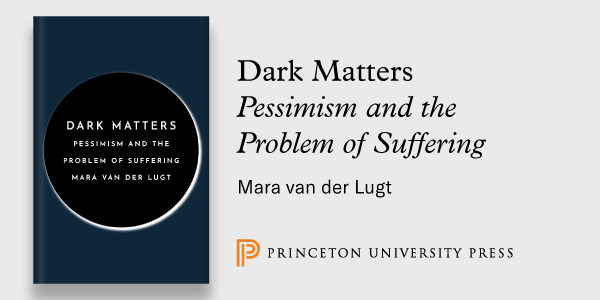Levelling the Linguistic Playing Field within Academic Philosophy (guest post) | Daily Nous
Published by Reblogs - Credits in Posts,
Levelling the Linguistic Playing Field within Academic Philosophy (guest post) | Daily Nous
Levelling the Linguistic Playing Field within Academic Philosophy (guest post)
Stylistic norms for writing affect philosophers’ professional prospects in unfair ways, and what one thinks should be done about this may be tied to one’s conception of what philosophy is supposed to do.
In this guest post*, Louise Chapman, the CEO of Lex Academic, an organization that offers editing and translation services for academic authors, discusses these issues.
Levelling the Linguistic Playing Field within Academic Philosophy
by Louise Chapman
Philosophy has a language problem. Schwitzgebel, Huang, Higgins and Gonzalez-Cabrera (2018) found that, in a sample of papers published in elite journals, 97% of citations were to work originally written in English. 73% of the papers in the sample didn’t cite any paper that had been originally written in a language other than English, and 96% of the members of elite journals’ editorial boards are primarily affiliated with an Anglophone university.
Unless we think that this reflects who does the best philosophy and where they do it, this is prima facie cause for concern. The Barcelona Principles for a Globally Inclusive Philosophy aim at addressing a "structural inequality between native and non-native speakers", and call on philosophers to take steps like including non-native speakers on editorial boards and not giving "undue weight to their authors’ linguistic style, fluency or accent".
Schwitzgebel et al.’s study doesn’t tell us what percentage of papers originally written in English were by non-native speakers. Nevertheless, there is a strong sense that, as the authors of the Barcelona Principles say, "non-native English speakers, who have not had the chance to perfect their knowledge of the language, are at a structural disadvantage".
How can this disadvantage be explained?
It’s possible that implicit biases play a role here. Pantos and Perkins (2012) used the Implicit Association Test to measure implicit attitudes towards those who speak with ‘foreign’ accents, finding that "the participants’ implicit attitudes favour the U.S. [in the context of the study, the non-‘foreign’] accented speaker". Similar associations may be at play when we encounter written work that we judge to be by a non-native speaker. (Note, there are outstanding questions both about how to best understand appeals to implicit attitudes and about the efficacy of Greenwald et al.’s IAT, used by Pantos and Perkins, as a psychological instrument. For more on this latter worry, see this earlier discussion on the Daily Nous.)
Furthermore, we should also be careful not to downplay the effects of explicit evaluations of how a paper is written. Here’s an example. The Australasian Journal of Philosophy invites referees to comment on whether papers "display flair, or elegance, or vivacity in the writing" and are "enjoyable, even exciting, to read". If the AJP is unique, it is only in making this requirement explicit: these instructions codify what happens, to a greater or lesser degree, when referees evaluate papers for top-tier journals.
Philosophy, then, has stylistic norms in addition to intellectual norms. Satisfying these former requirements will be harder for non-native speakers. As Saray Ayala says in an early contribution to this conversation, it is likely both that writing in one’s "native language gives one more freedom and control over one’s written style", and that "stylistic considerations play a big role in editors’ and referees’ decisions".
What can be done to remedy the exclusionary effects of these stylistic, or aesthetic, criteria? Here are two broad approaches.
One approach is to reject the norms, at least when making decisions that affect people’s careers. Being elegantly written, according to this line of thought, doesn’t in and of itself make for better philosophy. Allowing one’s evaluations to be informed by such features therefore excludes certain philosophers on the basis of something other than the quality of their work. Rejecting these norms may involve telling reviewers not to attend to stylistic features of a paper (other than clarity), and ignoring such features when choosing papers to cite or add to reading lists. The extent to which one can consciously prevent our evaluations from being guided by some features is, of course, up for debate.
A second approach is to keep the stylistic norms but make it easier for non-native speakers to satisfy them. Increased access to developmental editorial support may be part of this approach. Again, practical questions lurk. Wealthier scholars have increased access to such support. Funding could be provided as part of grants from governments or other institutions, or by universities. This, however, excludes those who don’t have grants, independent scholars, or those at less wealthy institutions. Those hoping for academic publishers to fund such services from their own profits may be waiting a long time.
These practical questions aside, a deeper tension is that which approach looks appealing may depend on your conception of philosophy.
One understanding of philosophy is that it involves building models or theories of a target phenomenon that are then evaluated against competitors for the purposes of identifying correct answers to philosophical questions. If this is right, then so long as a paper is written clearly enough to grasp the theory being presented, its stylistic or aesthetic features are (philosophically) irrelevant. If paying attention to these features systematically disadvantages some philosophers, this becomes a defeasible reason to ignore them in evaluative contexts.
If, however, you take the aim of philosophy to be therapeutic or to help us understand our place in the world, then disregarding stylistic norms looks less appealing. How successfully a piece of writing brings about a psychological change in its reader may turn non-trivially on how it is written. The power that some philosophy has over us cannot be boiled down to premises and conclusions, and so content cannot be cleanly disentangled from style. If this is right, then something would be lost if style was evaluatively disregarded altogether.
The route forward is not entirely clear. What is clear is that this structural disadvantage deserves closer philosophical and empirical attention. We owe this to current and future members of our philosophical community for whom English is not their native language.


The linguistics department at Michigan is currently trialing a more critical stance towards standard language ideology in academic settings, aiming for a more equitable approach to linguistic variation and diversity: https://lsa.umich.edu/linguistics/about-us/values-statement/standard-language-ideology-statement.htmlReport

It might be more precise to say that academic philosophy has a language awareness problem. If philosophy is envisaged as something along the lines of "thinking about thinking", and even more so as "principled thinking about thinking", then this reflective work requires some kind of linguistic self-awareness and epistemic humility. That’s a tough call, because this challenges the kind of linguistic ideologies (national, professional) into which many philosophers are acculturated from a very early age, to say nothing of how dominant these ideologies are in contemporary institutionalised knowledge economy, and how funding-starved departments and individuals are strongly incentivised *not* to challenge them. Then again, this higher-order reflective capacity seems like a crucial task for philosophy, and thankfully there’s a rich body of relevant scholarship in related fields on which to draw in doing this job.Report

Analytic philosophy would be *much* worse—for everyone involved—if we gave up norms of good writing. Even if the goal is to get at the truth, messy writing directly obstructs that goal by obscuring a paper’s ideas and wasting readers’ time. Boring writing has the indirect effect of making life harder for teachers. This is not the place to "level down."
That said, I love the idea of making it easier for non-native speakers to write well, read more easily, and reach a bigger audience. We should try to raise more money for translations, for example, and we should encourage people to write with an international audience in mind. Papers need to be clear. But they don’t always need cutesy wordplay and winking cultural references.Report

Analytic philosophy has much to gain from a more considered understanding of its own (c)overt linguistic norms, the social and political history that shaped them, and (if I may be so bold) a more nuanced understanding of who "we" are as a community with a shared system of linguistic conventions. What passes as "good writing", "boring", "obscuring", "clear" "more easily" and "cutesy" can very often be highly arbitrary judgements based on personal aesthetic preferences, which vary significantly between authors. These are odd foundations for a field that prides itself on principled thinking, and that attitude lies in an uncomfortable proximity to similar claims that one does not see race/gender/ability etc.
More importantly, none of the recent calls I’ve seen for rethinking the language question in philosophy entail "giving up" on norms in any way or form. Most of what is asked, to my understanding, is that professional communicative norms might be renegotiated on a more equitable basis. Does that not seem like a reasonable proposal, especially considering that L2 English speakers already vastly outnumber the L1 ones? And if not now, then at what point, precisely, would rethinking existing norms and negotiating new ones be seen as justified?Report

That is merely an ideal world: there is very little money already as it is in philosophy. As to "good writing", you seem to conflate a bunch of distinct issues: boringness is not messiness, messy is only one way of being opposed to good etc. Among other things, you seem to be assuming that contemporary Anglophone philosophy is already employing the best norms of "good writing", and that the levelling down the post suggests will have an impact on readability that is greater than the added value of bringing into the conversation talents from all over the world with knowledge of different languages and cultures. See also Yael Peled’s comments above.Report

Filippo, I don’t understand your comment. When did I conflate boring and messy writing? When did I assume that the "best" norms of good writing are already in force?
On the contrary, I said that boring writing and messy writing have different downsides, and that our norms should become more inclusive.
Yael, I find your comment puzzling, too. You ask who is saying we should give up norms of good writing. Did you read the post? The first proposal is to "reject the norms" that favor elegant writing.
As for the rest of your comment, let me see if I’ve got this right.
I said we should cut down on cutesy wordplay to be more inclusive. You said:
1. Who’s "we?"
2. "Cutesy" is arbitrary.
3. Basing our norms on what’s cutesy (etc.) is akin to certain bad views about race.
Afraid I don’t see the connection. Are you saying we should have *more* cutesy wordplay? If not, where do we disagree? Should I have defined "cutesy" before using it?
Maybe your point is that it should be up for debate what counts as "good" writing, for the purposes of philosophy. Great! I agree. That’s why I said we should change our norms around inside jokes and references.
That said, I don’t agree with you that norms of good writing are largely arbitrary. The point of most writing is to convey ideas. Some things—like ambiguity—can mess with that aim. Other things—like clunky syntax—can slow readers down for no reason.
I think our writing should convey ideas distinctly and succinctly. And I feel very lucky to be in a field with editors—like those at the AJP—who agree.Report

I’m no longer sure I understand your comments either.Report

That’s ok. I appreciate the work you do on this stuff & hope you have a nice day.Report

Hi Daniel, thanks for this reply and questions. Here’s a very tired attempt of a reply after a very long day. Let me being by saying that I understand your puzzlement, because we seem to have two very different understandings of what language and systems of linguistic conventions are. You seem to be adhering to a view that is very closely aligned with standard language ideology, and I’m trying to demonstrate that this is precisely what it is – an ideology. If you believe in this ideology, and happy to sign up for the very particular ways in which it organises contested matters of linguistic authority and legitimacy into a neat and supposedly problem-free normative order, then great. At least that decision is based on sufficient reflective awareness. But it seems to be worth pointing out that that is an ideology nonetheless, and that there are very clear epistemic and moral risks involved in not being aware of that fact.
Because of that basic difference in approaches, I am not entirely sure how to reply to your questions without having to essentially do a full-on intro to socio- or applied linguistics, critical or otherwise, first. One key insight from that would be that norms can never really be done with, because any kind of meaning-making, like any other type of social cooperation borne out of the nexus of difference and interdependence, is dependent on *some* shared norms. The point is that the kind of norms we discuss here are very seldom formed in an equitable manner, and that they are highly sensitive to unwarranted power relations. Think of something like the epistemic injustice scholarship, for a sense of how social meaning-making is very rarely the product of some kind of purely instrumental communication.
I will say one quick thing about "arbitrary". What is considered to be standard, "good writing", etc. can and indeed often vary significantly from one author to another, even among analytic philosophers; and many authors, when asked, find it incredibly difficult not only to identify what they dislike about certain usage but also to give a more comprehensive account of what good usage is. (This is distinct from things like readability levels which are much more systematic in their conception). One of the funny things about this state of affairs is that, when receiving referee reports, it is entirely possible that reviewer 1 would be very happy with the writing, while reviewer 2 would go into significant length identifying each and every utterance that is not fully aligned with their particular usage and specific preferences. None of this is surprising, because notions of deficiency are part and parcel of standard language ideology. But many writers who perceive themselves as loyal adherents to the standard do in fact display a surprising level of variance in their usage, which is then conveniently attributed to "personal style". But then how to determine what is "standard" and what is "personal style", and who is legitimately authorised to make that determination? A non-principled judgement is, indeed, an arbitrary one.
I made this point before on a different post, but many philosophers know more about the origin of their food and clothing than the origin of their linguistic beliefs, habits and convictions. I think that this is unfortunate, because there are very serious questions there about linguistic power, authority and legitimacy which have very real impact on the field and who gets – and doesn’t – to be part of it. So much of the conceptual cluster that you deploy in your (very welcomed!) reply exemplify that, e.g. "clunky syntax" and "distinctly and succinctly", and the same goes for identifying linguistic contestation relative to things like inside jokes as opposed to fundamental elements of what does and doesn’t count as "reason". What I’m trying to highlight is that there’s a very specific ideology that is underlying your understanding of how (professional) language works. If you’re happy with that ideology, great. All I’m trying to point out is that it is, indeed, an ideology, and as such may not be as problem-free as it appears to be.Report

Thank you, Yael, for the thoughtful reply. It sounds like we may agree about more than we disagree.
Some of our norms around writing are unfair. We should think about where they come from, and how to change them. We should be humble, since lots of our peers disagree about what counts as "good writing," and we should bear in mind that not everyone in field comes from the same background with the same advantages.
All that said, I guess I still think norms of clarity and elegance are invaluable — not just for the elites, but for everyone who has to read philosophy. Maybe you would agree if I added some caveats. We shouldn’t assume that everyone agrees about what’s clear and elegant, and we should be willing to listen to people with different perspectives. Maybe some things strike us as "elegant" for bad or biased reasons.
Anyway, thanks again for the reply & hope you got some rest!Report

Hi Daniel, thanks for the kind words. It was good to get some rest, for sure. I am happy we seem to be at least in partial agreement. What I really wanted to highlight was mostly that aesthetic judgements in language (as in other domains of human difference), and especially their epistemic inferences/interpretations, are never divorced from power relations.
I think perhaps my best conclusion would be the following: standard language ideology may not as simple as it seems – or purports – to be; but, equally, challenging standard language ideology in a pragmatic manner and along more equitable terms may not be as complicated as it is feared to be. Report

Being born into a country, or family, where English is regularly spoken is an obvious advantage in some respects. For example, I was born to English-speaking parents in an English-speaking country, and the challenges I face of writing publishable philosophy have little to do with my English ability. I recognize that as citations/publications are disproportionately English-centric, there are serious advantages that someone like me enjoys. But people like me also face disadvantages, personal and professional, given our linguistic backgrounds. I am not saying that these disadvantages are equal to the advantages I have based on my English background, but I think it is important not to simply ignore them.
Let me illustrate. I have some ability to speak/read other languages, but none of it is at the fluent level. Furthermore, it took me *a lot* of time and effort to get where I am with those languages. It took literally years and literally hours every week. A person born into a more linguistically-diverse context will often be a native or near-native speaker of more than one language. Personally, this has many benefits. Oh, were my parents also speakers of another language! It also has professional benefits. For example, a Chinese speaker is much better situated than I am to do work in Chinese philosophy if they so desire (the same goes for any language that has some philosophy done in it). Look at the ads on philjobs and how many of them ask for an AOS in non-western philosophy of some sort. For someone like me to get to the point of being able to claim an AOS in, say, African philosophy, much more effort is required than for a native speaker of the relevant language.
Again, I am not saying that the linguistic challenges that someone like me faces are equal to the linguistic advantages that someone like me enjoys. I just want to point out that there are in fact potential professional advantages to being a non-native speaker.
All this aside, I do think that, at the very least, journals should be less picky about the eloquence/enjoyability of a submission’s writing style.Report
Recent Comments
Subscribe
Archives
- October 2021
- September 2021
- August 2021
- July 2021
- June 2021
- May 2021
- April 2021
- March 2021
- February 2021
- January 2021
- December 2020
- November 2020
- October 2020
- September 2020
- August 2020
- July 2020
- June 2020
- May 2020
- April 2020
- March 2020
- February 2020
- January 2020
- December 2019
- November 2019
- October 2019
- September 2019
- August 2019
- July 2019
- June 2019
- May 2019
- April 2019
- March 2019
- February 2019
- January 2019
- December 2018
- November 2018
- October 2018
- September 2018
- August 2018
- July 2018
- June 2018
- May 2018
- April 2018
- March 2018
- February 2018
- January 2018
- December 2017
- November 2017
- October 2017
- September 2017
- August 2017
- July 2017
- June 2017
- May 2017
- April 2017
- March 2017
- February 2017
- January 2017
- December 2016
- November 2016
- October 2016
- September 2016
- August 2016
- July 2016
- June 2016
- May 2016
- April 2016
- March 2016
- February 2016
- January 2016
- December 2015
- November 2015
- October 2015
- September 2015
- August 2015
- July 2015
- June 2015
- May 2015
- April 2015
- March 2015
- February 2015
- January 2015
- December 2014
- November 2014
- October 2014
- September 2014
- August 2014
- July 2014
- June 2014
- May 2014
- April 2014
- March 2014
Heap of Links
- "The position that I have in philosophy—I grew up poor, I am a Black woman, et cetera—means I have… very different evidence of what the stuff of anger actually looks like" -- Myisha Cherry (UC Riverside) interviewed in The New Yorker about anger and philosophy
- What are and what should be the limits on scientific freedom? -- Heather Douglas (Michigan State) talks with Maria Kronfeldner (CEU) as part of a series on socially engaged philosophy
- "The political/ideological takeover is the practice of using political positions to drive our philosophy (or drive out the rest of philosophy), rather than the other way around" -- an interview with Michael Huemer (Colorado) at What Is It Like To Be A Philosopher
- Moral progress and moral methodology -- a conversation between Philip Kitcher (Columbia) and Julia Hermann (Utrecht) (scroll to the end for the link to the video)
- "There is nothing in the nature of academic research that guarantees that ‘the best ideas of a generation will become part of the canon for the next generation’; instead, many good and original ideas have been lost to the disciplines through bad luck" -- consider, for example, the case of Ludwik Fleck
- "There can be a lot of natural values, all equally valuable and natural, but different ones need different circumstances or social settings to be realized—so they will occur or flower at different times/places" -- an interview with Rachel Zuckert (Northwestern), who pays attention to "real tensions real facts about art and our appreciation of it"
- "The life I lived, inside the walls of the house and outside, was in fact not one life but two, lives that sometimes complemented and supported each other, but mostly clashed against a reality I could not fully grasp" -- a profile of political philosophy Lea Ypi (LSE)
- "Never call yourself a philosopher — let others do that" -- Spencer Case's appreciation of philosopher Bill McCurdy
- "To ask only questions we can answer is a failure of imagination" -- a brief appreciation of philosophy from Eric Schwitzgebel (UC Riverside)
- "Imagining is not an alternative to reality and rationality or a diminished form of it. Imagining is a complementary form in our ways of knowing" -- Luca Tateo (Oslo) on a unified theory of imagining
- The mathematics of heaps "looks like a living process" -- not about philosophy but this is the "heap" of links so file this under self-understanding
- There will be a virtual memorial for Charles Mills on Sunday October 10, 2021, from 2pm to 5pm, EDT -- details are on the new Charles Mills memorial website
- Audio of philosophy of science lectures from Voice of America’s "Forum: The Arts & Sciences in Mid-Century America" (1963) -- the series includes Quine, Hempel, Goodman, Black, Nagel, Putnam, Levi, Morgenbesser, Feyerabend, Suppes, and others (via Boaz Miller)
- "What are memoirists doing exactly, when we claim to ‘find’ this form and meaning in our past experience? Are we genuinely discovering it back there or just making it up?" -- Helena de Bres (Wellesley) on the philosophy of memoirs
- "My model of the world is that there are many, many, many thinkers, ideas and texts that are sufficiently interesting to merit serious consideration" -- why Liam Kofi Bright (LSE) opposes philosophical canons
- "In sex of all things, where humans so often misconstrue what other humans want… can we ever trust ourselves to know, really know, what an animal wants?" -- Amia Srinivasan (Oxford) takes an unflinching look at bestiality
- In Memo Akten’s ‘Learning To See’, "an artificial neural network loosely inspired by our own visual cortex, looks through cameras and tries to make sense of what it sees" -- "Of course it can only see what it already knows. Just like us."
- "It is morally imperative to not say true things on social media" -- Justin E. H. Smith on the "false representative class" today's technology has spawned
- "The visual image can no longer compete. Video is dead. Videogames seek to evolve into—or devolve back into—text-based games, so far with little success" -- a fascinating short story from philosopher John Holbo (NUS) about a world in which how people read has radically changed
- "I sometimes wonder whether it’s news to most philosophers that ‘A = A’ can be funny and even is the structure, or the form, of the perfect joke" -- a philosopher's appreciation of comedian Norm McDonald, who died in September
- It’s likely we’ll find that "being conscious, much like being alive, has many different properties that will express in different ways… among different species, among different systems" -- and so, says neuroscientist Anil Seth, "the mystery of consciousness may dissolve"
- "One reason most humanities professors wouldn’t consider themselves humanists: they’re too busy pretending to be scientists" -- by looking at the ideas of Charles Babbitt, we can see reasons to "jumpstart an omni-cultural humanist revival"
- A Facebook group for faculty and graduate students in philosophy who were first-generation college students -- created by Georgi Gardiner (Tennessee)
- "Our knowledge of ourselves is (meta)knowledge like any other – hard-won, and always subject to revision" -- Stephen M. Fleming (UCL) on the science of metacognition
- "We don’t even claim that it is rehabilitative, although it might be, but we do claim that it takes people seriously" -- an article about philosophy in prisons, based on discussions with MM McCabe and Mike Coxhead (KCL)
- "The fact that the term ‘mob’ can function pejoratively creates a paradox" -- an interview with Susanna Siegel (Harvard) on mob violence and vigilantism
- "Rationality is systematized winning." "It’s not winning I’m worried about… I want to know the truth." -- a teacher and a student talk about the limits of rationality
- Is the ball helping the mouse get to the cheese? -- Do we "see" free will? After watching the video, click on the PDF link for an explanation of a new "perceptual" approach to free will attribution.
- "As a scholar, I could not do my job if I accepted the sort of ‘reasoning’ we are given for the cruel arrangements under which we labor" -- "And that is the fundamental bullshit on which all the bullshit sits," writes Amy Olberding (Oklahoma)
- "In everyday life we often experience cities as beautiful… however, the city is only a marginal topic in aesthetics" -- Tea Lobo (Collegium Helveticum) on the aesthetics of cities
Tags: Linguistics, Philosophy, Metaphilosophy, Chart, Zas









